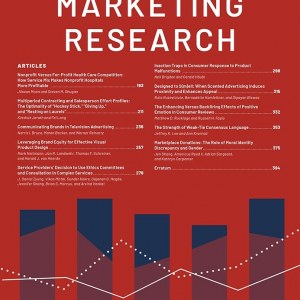
de Jong, M., Pieters, F. and Fox, J. (2010). Reducing Social Desirability Bias Via Item Randomized Response: An Application to Measure Underreported Desires Journal of Marketing Research, 47(1):14--27.
-
Affiliated author
-
Publication year2010
-
JournalJournal of Marketing Research
The authors present a polytomous item randomized response model to measure socially sensitive consumer behavior. It complements established methods in marketing to correct for social desirability bias a posteriori and traditional randomized response models to prevent social desirability bias a priori. The model allows for individual-level inferences at the construct level while protecting the privacy of respondents at the item level. In addition, it is possible to incorporate covariates into various parts of the model. The proposed method is especially useful to study social issues in marketing. In the empirical application, the authors use a two-group experimental survey design and find that with the new procedure, participants report their sensitive desires more truthfully, with significant differences between socioeconomic groups. In addition, the method performs better than methods based on social desirability scales. Finally, the authors discuss truthfulness in data collection and confidentiality in data utilization.